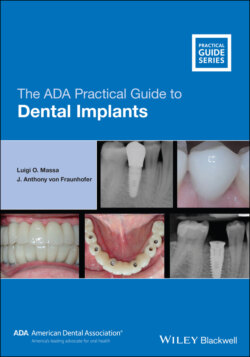Читать книгу The ADA Practical Guide to Dental Implants - J. Anthony von Fraunhofer - Страница 19
Replacing Missing Teeth
ОглавлениеThe efforts of Ambroise Paré, John Hunter and others to replace missing teeth through implantation of sound teeth from donors were the initial attempts to address this need in patients. Dentures, as such, were not available for the general populace back in the fifteenth and sixteenth centuries and only the very wealthy could avail themselves of transplanted teeth or the rudimentary dentures of that period. Charles Allen of York, England, the author of the first English book solely on dentistry [7] was very dismissive of tooth transplantation.
Patients seemed to accept the limited durability of transplanted teeth and transplantation, probably due to clever publicity and hucksterism, became almost a craze on the European Continent, in England and even America in the late eighteenth century. Sadly, through the sixteenth, seventeenth, and eighteenth centuries, paupers often sold their teeth for cash to earn a little money and the heroine Fantine in Victor Hugo's Les Misérables (1852) was forced to sell her hair, then her incisors and finally her “virtue” in order to survive. Despite its lack of success and almost total disregard of the basic precepts of oral hygiene, tooth transplanting continued well into the nineteenth century. In fact, barrels of teeth extracted from casualties in the American Civil War were regularly shipped to England, and presumably Europe, for both transplantation and to be used in constructing dentures.
This situation changed with the advent of dental schools, the establishment of professional standards and the growing awareness of the general public that dentistry, dental care and oral hygiene were important not only to the oral cavity but also to systemic health. Nevertheless, despite the venerable history of dentures and the remarkable success of modern CDs, FPDs, and RPDs, many patients simply do not like the fact that they must resort to prostheses to preserve masticatory efficiency and maintain facial esthetics. As any dental professional recognizes, there are myriad reasons that patients complain about their dentures. Many complaints, arising from poor denture fit, discomfort, inadequate retention and even pain, are completely understandable and often justified whereas others arise from a basic dislike of a “foreign body” in the mouth. Further, the need for careful oral hygiene and meticulous cleaning of removable appliances is commonly viewed as an unwelcome chore if not an imposition. The perception of many patients is that all of these factors, combined with many others, contribute to the steadily growing appeal of a dental implant that appears to be permanent, painless, and “maintenance‐free.”
